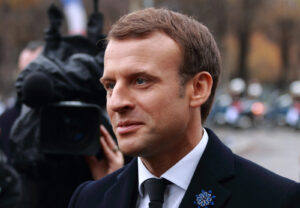The Russian military invasion of Ukraine has been swift and bloody. Key cities are under siege, and refugees fleeing war have officially topped one million. A fight for the capital looms.
Ukraine has armed its citizens; despite the massive Russian bombardment of residential areas, Putin’s advance has met fierce resistance. President Zelenskyy remains in Ukraine, steadfast and defiant. He has called on ‘friends’ to join the fight and urged NATO to ‘close the airspace’ and enforce a no-fly zone to protect the people of Ukraine.
For President Putin, the invasion is about self-defense. The eastward expansion of NATO is an existential threat to Russia. The war has clear and limited goals: the ‘de-Nazification’ and ‘de-militarization’ of Ukraine. In a chilling message to anyone planning to interfere, Putin has threatened ‘consequences greater than anyone has ever faced in history.’
Thus far, the international response has been twofold: subject Russia to international sanctions and deliver lethal aid to Ukraine. Current sanctions include asset freezes and sanctions on wealthy Russians with close ties to the Kremlin, export controls on technology, and sanctions targeting Russian banks and oil refineries.
Early indications are that Russia feels the pain of a de facto economic blockade. The Rouble has crashed by more than a quarter, the Russian stock market remains closed, and capital controls have been put in place to curb soaring inflation. Meanwhile, Russian citizens continue to queue for foreign currency.
The problem is that economic sanctions alone are unlikely to collapse the Russian economy. Russian energy exports comprise over half of all Russian exports. However, an energy embargo would cripple the Russian economy, but it would devastate Europe too, where gas supplies are already tight.
Sanctions have long been a foreign policy tool when countries are not willing to engage in military action. The issue is that their success in halting government behavior has been historically limited. From Iran to South Africa, countries have been able to withstand international sanctions regimes by displacing costs onto their domestic populations. The same is likely to happen in Russia.
On the matter of lethal aid, NATO members and their allies have set out to supply Ukraine with a range of weapons systems and military hardware as an alternative to NATO airpower and troops on the ground. Consensus on the strategy is wide-ranging, beyond the European Union and the United States, Germany, and non-NATO countries with a history of neutrality, such as Sweden and Finland, have made significant contributions to Ukraine.
The Russian ultimatum to compel Ukraine to reject NATO shows that the Kremlin believes that the cost of inaction is greater than the inevitable costs of military action. In the short term, at least, biting international sanctions – which Putin considers an act of war – and the steady flow of lethal aid to Ukraine will almost certainly oblige Russia to retaliate with escalating military force.




